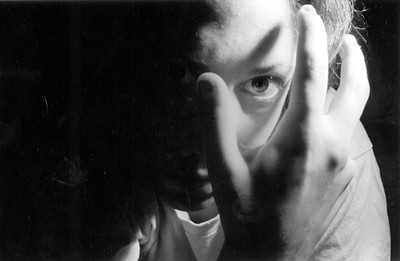All Nonfiction
- Bullying
- Books
- Academic
- Author Interviews
- Celebrity interviews
- College Articles
- College Essays
- Educator of the Year
- Heroes
- Interviews
- Memoir
- Personal Experience
- Sports
- Travel & Culture
All Opinions
- Bullying
- Current Events / Politics
- Discrimination
- Drugs / Alcohol / Smoking
- Entertainment / Celebrities
- Environment
- Love / Relationships
- Movies / Music / TV
- Pop Culture / Trends
- School / College
- Social Issues / Civics
- Spirituality / Religion
- Sports / Hobbies
All Hot Topics
- Bullying
- Community Service
- Environment
- Health
- Letters to the Editor
- Pride & Prejudice
- What Matters
- Back
Summer Guide
- Program Links
- Program Reviews
- Back
College Guide
- College Links
- College Reviews
- College Essays
- College Articles
- Back
Dyslexia
We speak more now that ever. Not just by the vertical movement of our mandibles, but with symbols, identifying spoken words and taking them to written form. For most people, such symbols are called letters, and they make up words. But for a special select group, to look upon a single word, serves as a constant reminder that they will never be normal. Dyslexia is a learning disability affecting up to ten percent of the worlds population. Walker Pitts is in the ten percent affected in the whole world. He will never be normal, but first, what is dyslexia?
The word dyslexia is used as an umbrella term for many of the different symptoms associated. Dyslexia is most commonly known as being a letter decoding inhibitor; it is not a seeing or an eye problem. Among other learning disabilities, though, much is left unknown in the field of dyslexia. Why? Because humans have only recently insisted upon having entire populations of people read. It has become exceedingly rare to find an illiterate person in the United States. But, so what, why does it matter that humans have only begun reading in the last hundred years? Many people believe that there are so many problems with dyslexia, because the human race burned through reading, in the sense that perhaps we didn’t give ourselves enough time to adapt to the type of meticulous reading needed for advancement in the world today. Therefore, much is left unknown in the field of dyslexia related medical research because humans haven’t been struggling with it –or at least haven’t been able to recognize it –for thousands of years.
Official studies have been done documenting what people go through with dyslexia, yet many doctors claim we know nothing about it. A scary concept, but really, what could be so bad about being dyslexic? Has it been reduced to a tag in characteristics? Preluded in the opening paragraph, Walker Pitts, a sophomore at Arlington High School is within the ten percent in the world with the learning disorder. In order to really research the effects of dyslexia, some field research was needed. When asked about the specific complications Walker goes through, he became flustered, rambling on, as if he couldn’t stop if it was possible. The complications included; not being able to see the board, asking teachers for notes, and having to have the teachers whisper to him. Most of what Walker complained about weren’t the direct stresses of dyslexia, but perhaps the inadvertent ones. He feels belittled everyday. “Test days are the worst, people have to read stuff to me, and I have to go to other rooms to finish after school”. America has come a long way since the Americans with disabilities act, and alike, yet it seems that by the very special treatment meant to make everybody equal, it has actually separated Walker more definitively and efficiently.
Even so much is being done for Walker, and perhaps his case is an anomaly or an isolated case, after all, he is severely dyslexic. He still remembers the chilling words the doctors who diagnosed him shared with his mother nine long years ago. “I’m surprised your child made is past the second grade, he is the most dyslexic person I have ever encountered”. There are obvious deprecations to having dyslexia, but could it ever be a positive thing? After all, groundbreaking research has been done showing that perhaps dyslexia is a gift, showing that dyslexic people are often times extraordinarily more creative artistically, more coordinated, and poses other qualities less accentuated by “average” people. But, are we making “Rainmen” of all learning disabled people? Doctors aren’t moving to conclusions too quickly, but the list of successful people who have dyslexia is daunting at least. Among the biggest names are George Washington, Steve Jobs, Einstein, Thomas Edison, Pablo Picasso, Leonardo DaVinci, Magic Johnson, and Muhammad Ali. Many others grace the exponentially long list, including almost a sixth of U.S. Presidents. There is an overwhelming sense that dyslexia is more of a gift than anything, and among such supporters of this self titled thinking nouveau, is Walker’s brother, who remembers seeing the majestic compilation of little green army men scattered sporadically, in a real-life battle scenes, that most of the time took three days and an entire living room to construct. It all prompts one to rethink every study ever done in the field of dyslexia. Two in-depth scientists (Elliot&Gibbs) have recently done so claiming “attempts to distinguish between categories of 'dyslexia' and 'poor reader' or 'reading disabled' are scientifically unsupportable, arbitrary and thus potentially discriminatory”. After adding gasoline to the already heated debate over dyslexia, will we ever get anywhere? Imagine for one second that you are standing before two lines. One line contains ninety percent of the worlds population, the other is composed of the remaining ten, only they are dyslexic. If it was your choice what line would you stand in?
Who is the one with the real learning disorder, Leonardo DaVinci, or the rest of us?

Similar Articles
JOIN THE DISCUSSION
This article has 0 comments.
